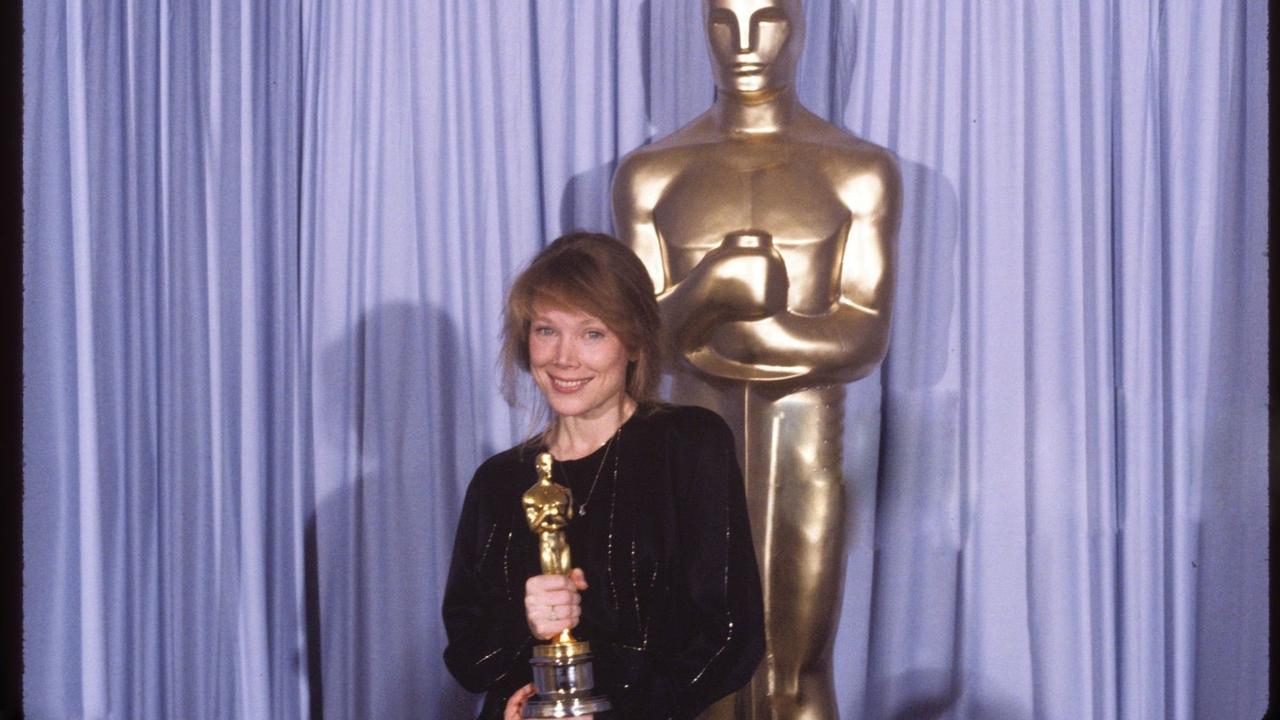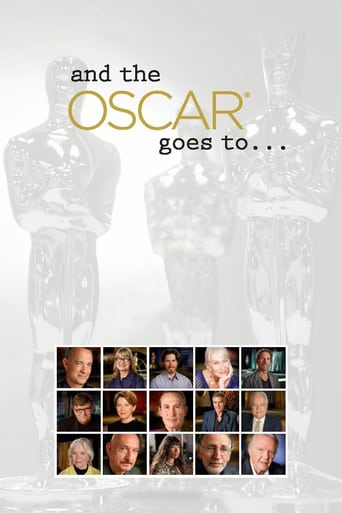

Funny, strange, confrontational and subversive, this is one of the most interesting experiences you'll have at the cinema this year.
... View MoreEach character in this movie — down to the smallest one — is an individual rather than a type, prone to spontaneous changes of mood and sometimes amusing outbursts of pettiness or ill humor.
... View MoreIt’s fine. It's literally the definition of a fine movie. You’ve seen it before, you know every beat and outcome before the characters even do. Only question is how much escapism you’re looking for.
... View MoreThe thing I enjoyed most about the film is the fact that it doesn't shy away from being a super-sized-cliche;
... View MoreThis is about what you'd expect, for the most part. Do you like montages of many of the great (American mostly) films of the 20th century and some of the 21st? Do you like interviews with the people who made the Oscars what they were (and the movies themselves) in ALL categories (not just acting but costume too)? The filmmakers give you the story of the Academy of Motion Pictures Arts and Sciences awards, and a little other history too (like how AMPAS actually used to be set up to strong-arm *against* the industry, but the union strength in the 1930's made it into a different beast), and also a tour through the various categories and winners and nominees over time (mostly winners).Industry main-stays like Tom Hanks, Steven Spielberg, George Clooney and Helen Mirren also share space with costume designers, cinematographers, editors, make-up artists, and many others for a look at what makes the art form the art form... in 90 minutes. If this had been longer, and looked at even more in-depth at the history, it might actually have been great instead of just... good. It is good, it has enough depth and history through the films that made the Oscars the Oscars to justify its existence (and of course getting clips like the Sacheen Littlefeather 1973 Godfather speech, or Jane Fonda's win for Klute, or the Damon/Affleck jubilant win for Good Will Hunting is always fun to see). I just wish it didn't skim over certain parts of Hollywood history like how the industry changed when the studios collapsed in the 1960's (there is some stuff on the blacklist though, if only briefly).
... View MoreThis is a power packed 90 minutes. Granted the whole history of the Oscars should be a mini-series, maybe produced by Ken Burns, but for a quick historical perspective and a look at the glamor of the whole thing, this isn't bad. We get to see a multitude of stars, a few acceptance speeches, features on the different categories, all done in snippets, and there is a friendliness and honesty here that isn't usually present in these kinds of shows. I always look forward to the Oscars and ever time I'm bored and disappointed because the show is often so dull (the first five minutes is usually the best with a great production number) and endless. The other problem lately is that it's like watching election coverage where all of the races are already called before the show starts. The internet and the press usually tell us who all the winners are ahead of time. Granted, in close races, there are some surprises, but you immediately know that three of the five nominees don't have a chance. Anyway, I thought that for a little insight into the Academy Awards, this was a nice job.
... View More"And the Oscar Goes To..." is a 2014 documentary shown on TCM recently. Some of the interviews, like the one with Jane Fonda, were not recent, but most of them seemed like they were.The documentary took us through the early days of the Academy Awards through to the 21st century, though more recent years seem to have been left out. I think the latest clip was in 2010 announcing The Hurt Locker as best film.Lots and lots of clips of past Academy Awards, including hosts Whoppie Goldberg, Bob Hope, and Billy Crystal; past winners -- Hattie McDaniel's heartfelt speech after winning for Gone with the Wind, Michael Moore winning for Bowling for Columbine, Jane Fonda for Klute, Sasheen Littlefeather accepting for Marlon Brando (Godfather), "Good Will Hunting" stars Ben Affleck and Matt Damon, Henry Fonda's win accepted by Jane Fonda; Dustin Hoffman, Ruth Gordon, Marlon Brando (the first win) and many others. There was a discussion of the McCarthy era and the blacklist; and footage from backstage, where the press and photographers meet the winners.So I'd say they packed a lot into 90 minutes. Also, there was a look at some of the classic stars announcing the awards: Rock Hudson, Elizabeth Taylor, Audrey Hepburn, Grace Kelly, Jimmy Stewart, etc. Narrated by Angelica Huston.Highly entertaining.
... View MoreIf I'm correct about this documentary debuting last night (2/1/2014) on the Turner Classic Movie Channel, then a couple of film lovers already beat me to the punch with a review here. That's a quick turnaround I must say. Anyone tuning in to the program will be rewarded with a neat if only surface skimming history of the Academy Awards, but with that in mind it was a credible effort. I particularly enjoyed some of the older clips dating back to the origins of the Academy, and to my mind it would have been a disservice not to mention the winner of the first 'Best Picture', but they did and even showed a brief clip from "Wings", a film about World War I. I was reminded of my own recollection of the first time I ever watched the Awards with Bob Hope presenting during an era when he was a perennial host. Actors appearing who voiced personal comments about the awards included Helen Mirren, George Clooney, Benicio del Toro and Cher, but it was Dustin Hoffman in an acceptance speech clip who voiced possibly the best perspective on the Oscars when he stated that even though only one film or actor can win a given category, no one should feel like a loser in such esteemed company. I guess that's a healthy way to look at it, but at the same time I wondered what would have gone through his mind if he hadn't been able to give that speech. Anyway, I'm pretty sure this will get a rerun or two on TCM, so if you have the chance, give it a look. Long time film fans will doubtless have fun trying to identify some of the former celebrities who appear in whiz time fashion from clip to clip.
... View More